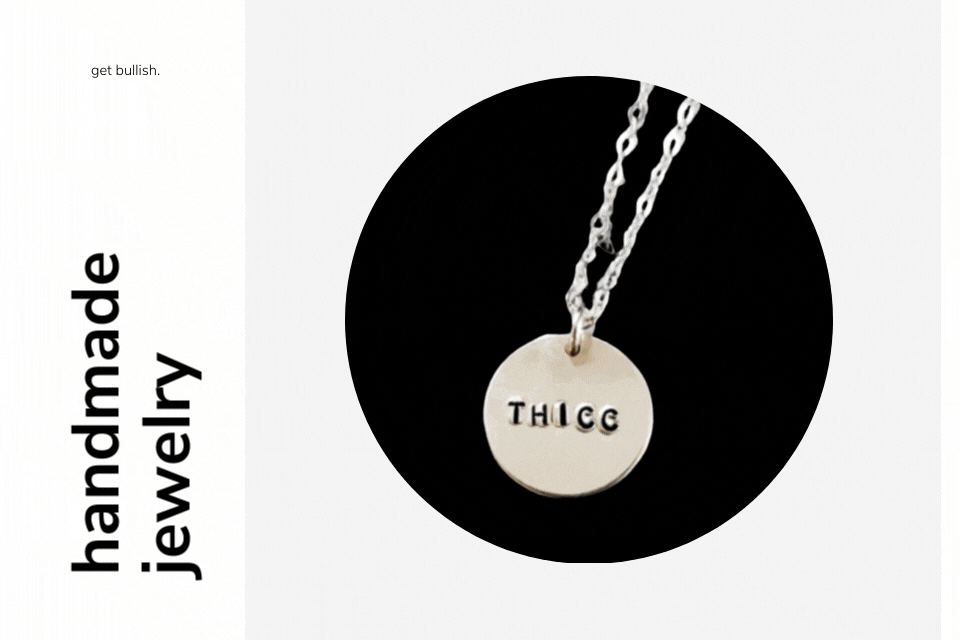This article is more than ten years old. It originally ran on a now-defunct website called The Grindstone. This post was created entirely by humans, as AI didn’t exist back then (but also: why would you want to read something no one could be bothered to write?) For more recent posts, try here.
Some people manage to do business with friends and it works out awesome with no problems at all. Some people also have romantic relationships with their cousins and it’s super cool with no family rifts or incest feelings during sex or genetically unfortunate babies.
This is not a go-ahead.
Despite the successes of a few, most of us should beware. Of course you can (and should!) network with friends and recommend each other for opportunities. But you should be very wary of letting money change hands, or hiring each other directly. This isn’t generally leaving money on the table – good friends are actually more valuable as friends than as customers.
Observe this letter from a reader I’ll call Lisa Simpson.
Dear Jen,
As a freelancer, I’ve found lots of room for awkwardness in doing business with friends. So, a friend had finally scheduled a saxophone lesson with me, and several days in advance she wasn’t sure she could make it, and asked if I’d rather she just cancelled now, or waited until she was more certain. I told her she could cancel any time until 24 hours before, after which she’d be responsible for paying for the lesson. She accused me of “treating a friend like a business transaction” and said it felt like a slap in the face that I would have held her accountable for the money because she’s supported me in my music, coming to one of my gigs and buying my CD. So I explained how it’s always uncomfortable to be upfront and direct about money with friends, but that’s part of owning a business, and that I had turned down another student for that day, and since she cancelled in advance I was able to call that student back and fit her in, and if she hadn’t I would have lost money. So she wrote back that she understood and we decided to reschedule. But I think we are both left with feelings hurt.
The “lesson cancellation policy” is probably where I’ve had the hardest time doing business with friends, because unless they teach private lessons themselves they don’t get it.
Selling my CD to friends has also been particularly awkward. Mostly if I actually have to ask them directly if they’d like to buy one, which I hate doing, but most people flake otherwise. Some people literally refuse and say “You should just give it to me for free.” I guess that has to do with the devaluation of music as well, but I am thousands in debt over the cost of making the album. It wasn’t free to me.
It’s even more awkward taking money from people for my CD if the person has done me a lot of favors. You know, like if they always pay for dinner or let me crash on their couch on tour or something. Don’t I owe it to them? But you can start looking at everyone that way and then you’re still in debt.
It’s just that there are a lot of things that friends do for one another for free, and that’s part of being friends. So when you try to do business with them, that line gets really blurry.
Looking forward to your thoughts.
Lisa
Oh, yikes! Lisa, I’m so sorry this happened to you. Let’s deconstruct this a bit. And then I’d like to talk about bringing friends into Regular Jobs, too.

Business transactions with friends should be immediately classified – “Yes, I really do want to be a client” or “Actually, I just want a favor.”
Lisa, I hope you take kindly to this – this interaction with your friend never should have gotten this far. What went wrong is that you and your friend initiated a proto-business relationship that meant different things to each of you – and as the businessperson, it’s your job to define that relationship.
Next time a friend wants a saxophone lesson, say, “Oh, that’s so cool that you want to learn sax. I don’t want our friendship to get weird, so let me ask you – do you want to be an actual client, meaning that we have definite meeting times, and I [do all the cool stuff I do for my clients] and there’s a cancellation policy in place and we really do this seriously, or do you just want to do a little sax experimentation some time when we hang out?”
It’s okay to do a bit of a sales pitch in there, pointing out how well you take care of your clients, but also slipping in the mention of the cancellation policy. If your friend picks the latter – “Yes, let’s keep it casual” – then I’d suggest something like, “Let’s just experiment a little next time we hang out, and if you decide you want to do it more seriously we can talk about setting something up with payment and regular meeting times. Cool?” And then I’d recommend keeping your friendship intact as a top priority. Give your friend a free mini lesson (even just 20 minutes), then get bored and crack open some beers and make it clear that you’re done. If she wants to keep going, say, “Oh, that’s my job – I just want to catch up with you!”
If she really does want to learn sax: “So, do you think you’d want to do this for real? We’d go for a full hour, I’d give you homework and get on your case about doing it, that kind of thing.” If she really wants to do it, then go grab your policy sheet.
So, yes, I’m also saying that this cancellation policy business is much less awkward when it’s written down. Even if she had been sure right away that she wanted to be a real client, I’d still recommend emailing a document to make it a bit less personal. (“Here are my policies. This explains the cancellation procedure and the payment situation.”)
And finally, let’s be honest – even if your friend agreed to the cancellation policy before canceling, there are two ways that could play out: either she pays you and it’s no big deal, or you have to enforce it and it ruins your friendship. There is no friendship that will withstand “I need $100 from you because you canceled our 4 pm appointment with only seven hours notice.” Even if you were to do everything right, you’d have to be willing to let it go if you want to keep your friend.
In my tutoring business, by the way, I give the first cancellation as a “freebie,” and use that as an opportunity to mention, “No problem – I always let the first one go, no big deal. I do have a cancellation policy, so I do charge if you cancel within 48 hours – but this one’s no problem.” I think of this every time a hair salon tells me about their cancellation policy – I always think, “Yes, and if you really tried to collect that, your customer would almost certainly never come back to this salon.” It’s not fair, but it’s true. The cancellation policy is more of a reminder (before the fact) that canceling is a shitty thing to do.
You know what’s even worse than attempting to enforce a cancellation policy on a friend? When a friend – or a friend’s company – owes you a large amount of money and isn’t paying up. No one wants to have to collect from friends.
Here, I’d like to direct you to a post on the Harvard Business Review that makes the excellent and practical suggestion of sending emails “under separate cover.” (This works a bit better for people in regular jobs or businesses that aren’t just them.)
That is, send one email from your personal account, catching up on your friendship, and mentioning, “By the way, later today I’ll be getting in touch about your invoice under separate cover.” And then email about the invoice from your work email address in a formal, professional manner (writing as though your boss were going to read it). That avoids the really awkward, “You looked hot last night! By the way, when can I get that $1,200?”
Note that in all of the above, I’m advocating that you almost talk your friend out of being your client. For good reason…

Your friends are not fans – and you wouldn’t want them to be.
When you have a creative career, all this business about whether people you care about support your work takes on this whole new, emotional dimension. If I felt that my friends didn’t support me in my goal to become a hedge fund manager, I doubt I would be as hurt as if I felt they didn’t support me in my goal to be a playwright. With creative careers, the rejection element is more acute. When your CD is not worth $10 to people, it kind of seems as though someone has peered into your soul and found it wanting (at least presuming you’ve included some of your soul on the album).
But in Lisa’s case, her friends haven’t rejected her at all. In fact, they do “a lot of favors,” like always paying for dinner and letting her crash on their couches. These people actually sound like pretty good friends.
They sound like pretty shitty fans, though. Because they aren’t.
Let me be clear, here: your friends will never be your fans. Now, your friends can be fans of your work, sure. They do this by Tweeting messages like, “My friend Lisa plays sax like a motherf*cker, follow her @lisasosaxy.” But if they actually wanted a t-shirt with a picture of your face on it, that would be creepy, right? I mean, they can’t wear that to brunch with you. That’s insane. And it would just seem like a suspiciously big coincidence if they all really loved exactly the type of music you happen to do. It’s okay if they don’t.
In fact, the more niche your product – like, say, saxophone music, or grammar jokes – the less likely that your friends will genuinely be fans of your work. This is fine, like how your boyfriend doesn’t have to be a good person to get pedicures with. You can get these things from different people. And you usually have to.
I used to do a lot of standup comedy. At first, I was able to get little crowds to come to shows – crowds of friends, and friends of friends. But in order to keep doing that, you generally have to keep making new friends. Many new friends will attend a comedy show once, to help solidify a new friendship. Then they expect to have paid their dues, and be your peer.
After a while, I collected some “fans,” which were mostly of the flirtatious older male variety. At first I would be very flattered that they really liked my grammar jokes, until it became apparent that these guys had social-network-chatted-up every female comic on the Internet, like notches on a bedpost it’s okay for a married guy to make notches on. (Note: lady comedians, being individual human beings who write their own jokes, are very different from each other. If you can claim to like them all, you are almost certainly doing it for the wrong reasons.)
After years of pestering friends into attending standup shows, I started lessening the “separation of church and state” and mentioning to contacts from my other businesses that I did standup. Most of my business contacts didn’t know any other comedians, so they thought this was pretty cool. One of them – Mr. Banker Guy – immediately hired me to do a birthday party for $400. I realized that, instead of making my friends pay $15 cover fees to comedy clubs (where I didn’t even get any of the money!), I should’ve been asking my friends if they knew any other people like Banker Guy.
Eventually, I just stopped doing standup, and now I only do one-woman shows on nerdy topics such as philosophy and punctuation. I’d rather do something very specific for a very specific audience (I once killed at a book festival!) than do something very general and try to shoehorn all my acquaintances into pretending they like it.

Later, I went on a tour with a friend who was much more successful than I was. She had real fans. I noticed that these fans didn’t necessarily want to be her friend; they wanted to define their identity to other people as having something to do with liking her work and even having met her once. (If I went to an Iggy Pop show, it probably means I’d like to tell other people that I’m the sort of person who goes to Iggy Pop shows, not that I want a 64-year-old punk rocker in my kitchen.)
This friend doesn’t expect me to go to her events or buy her stuff. She has fans for that. I’m a confidante. I listen to her behind-the-scenes stories and provide a sounding board and occasionally give advice. If she had a CD, she would give it to me for free, or else I would just hand over the cash as though I’m offering to pay for lunch this time – that is, no big deal either way. Friends do not pressure each other to buy things.
You need to meet people who already love saxophone music, and whom you would never be friends with in real life.
So, this CD issue – as attractive as it is to see the physical product of our work and to really make something, it is not a financially sound decision to produce CDs if you don’t have non-friends who want to buy them. That is, fans.
Unless, of course, the main purpose of the CD was to get it in the hands of industry or the press. If so, then tell your friends that. “I didn’t make that many CDs because I mostly want to get them to music executives and journalists – I’ve got a few that I’m selling to recoup the cost of making them.” And then if the friends don’t want a CD, leave it alone.
Sometimes, your friends actually just like you for you and are ambivalent about your creative work. Unless you specifically only make friends with saxophone fans, it’s a certainly that some of your friends have already heard more than enough of your music, and just want to spend some time with Lisa. This is as it should be. If your career takes off the way you want, you will someday have millions of fans – and not enough of these kinds of friends.
And if your friends have “always” paid for dinner, yes, you should give them a CD. They’re your investors. That is much more valuable than whatever you are charging for the CDs. Giving them the CDs is probably cheaper than paying for dinner (it sounds like it’s definitely your turn).
If you really can’t give them a CD, tell them that you had to go into debt to physically produce the CDs, but you’d love to give them a link to a free download. And then let them enjoy the fruits of the creative career they’ve invested in by being good friends.
In a Regular Job, hire THROUGH friends, but be careful hiring friends.
I had lunch yesterday with an Important Person at a Big Corporation. I’ll call him/her “RJ” (Regular Job). Also, I’ve always known about the gender-neutral pronoun s/he, but I’ve just learned how to pronounce it (sha-hee!), so I’m excited to have a legitimate opportunity to use it in making someone anonymous.
RJ, who is in his/her forties and thrives within large corporations, said some pretty amazing things:
“Every single job I’ve gotten for the last twenty years I’ve gotten from friends.” (See Bullish: Basing Your Career On A Resume Is Like Competing In A Brothel Lineup.)
“Everyone I hire, I hire through friends.”
“You can hire a friend to work as a peer. But never hire a friend to work underneath you. That’s when you want to hire a friend’s kid. Actually, someone more removed than that – you want to hire a friend of a friend’s kid. The greater the number of levels below you the job is, the greater the number of degrees of separation you need in hiring.”
Having permanently weirded-out (at least) two friendships by bringing money into it, I can speak to this – do not hire your friends to work directly under you unless you want them to resent you and for everything to be weird forever and ever. If you are much older than the friend, or clearly already have a sort of mentor/mentee relationship, that’s different. But friends don’t pay friends by the hour. At least, not generally very successfully. Not more often than couples successfully share an email address and electric toothbrush. Meaning, don’t risk it.
I asked RJ about Lisa’s situation, and s/he agreed: “It shouldn’t have gotten that far. Your friends are your friends. They tell people about you.”
Your friends are not your fans or your clients. Your friends are your network. Treat them well, and they’ll help you get real fans or clients. It’s a longer-term strategy, to be sure. But a friendship that broadens and blossoms into a true alliance will be far more beneficial – and gratifying – over time than a quick sale now.







